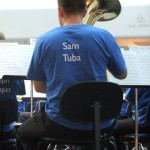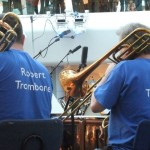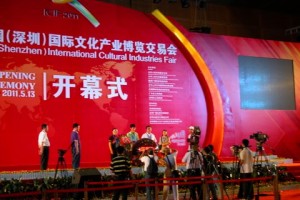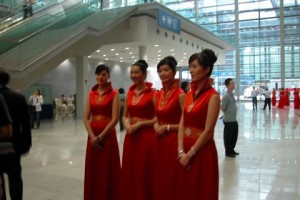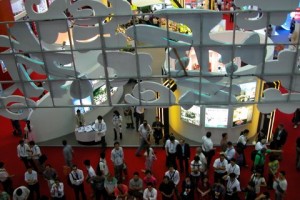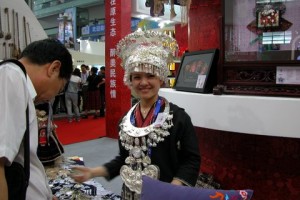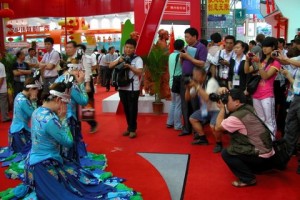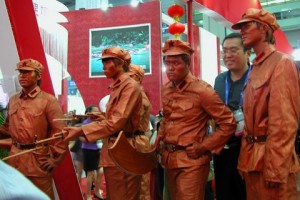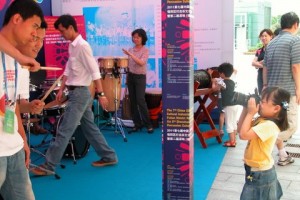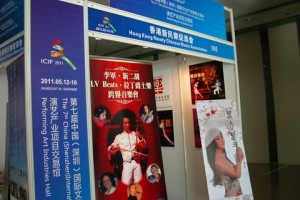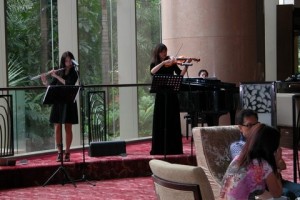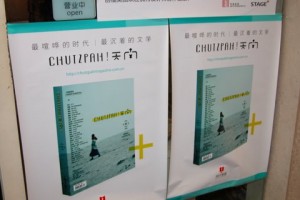by Cathy Barbash
As mid-summer approaches, US-China cultural exchange continues its lopsided dance. No American performers participate in festivals in Xinjiang and Guangdong. Meanwhile, in Beijing, a consortium of U.S. conservatories attempts to woo Chinese students with their own show-and-tell festival.
Way out in Urumqi, Xinjiang Province, the second annual China Xinjiang International Folk Dance Festival will present 14 local, national and international troupes in nearly 80 performances from July 20 through August 5. In keeping with current national priorities, this year’s festival is themed “Harmonious China, Colorful World”. As the press conference stated in the inimitable Chinese fashion, “The Dance Festival will showcase the development of the current boom in Xinjiang, civilized and harmonious new image, let the World know Xinjiang.”
Programming will include artists from Hong Kong, Russia, North and South Korea, India, Algeria, Russia, Pakistan, Singapore, Taiwan, Hong Kong and Spain. Domestic groups include the Central Ballet of China, the Hunan Provincial Song & Dance Company, and the People’s Liberation Army Song & Dance Company. (http://www.f-paper.com/). Unfortunately no Americans. Xinjiang’s local troupes will showcase their World Intangible Cultural Heritage forms of maqam and manasi, but my suspicion is that most folk dances will have been sanitized and fetishized. The Festival will also market to a tech-savvy audience with an online dance audition. Contestants will compete for awards for Best Creativity, Best Stage Performance, People’s Choice, Best Group and Most Promising etc, with votes cast via internet, voice, and SMS.
Back east, the 8th Guangdong Modern Dance Festival (produced by City Contemporary Dance Company’s Willy Tsao) will offer one more season from July 24-29 before taking a sabbatical year to find a more sustainable operating model. Since 2004, the festival has focused on the development of Chinese dance-makers, premiering almost 300 original works, and featuring artists from over 20 provinces and regions in China. The festival has been unusual in that it operates on box office income and donation from the community without government subsidy.
While offering several international troupes (but alas, again nothing from the U.S.), this last festival before the hiatus will focus inward, reviewing China’s dance development over the past decade, and gathering from all over China (including Hong Kong, Macau and Taiwan) about 80 dance groups featuring over 300 Chinese artists in its “Youth Dance Marathon (YDM)”, “Springboard” and “Mainstage” performances. Together with more than a dozen visiting companies from overseas, the Festival will present over 100 creations for an audience that will include over 30 international festival directors, curators and guests. For general program information, see http://www.gdfestival.cn/en/
Meanwhile, the U.S. still searches for Chinese “customers.” This summer’s notable American performances may not be direct public diplomacy exchanges, but represent a savvy marketing effort for American-style music education. A consortium of American music conservatories will showcase themselves in the “2011 First U.S. Music Schools Piano and Violin Music Festival,” co-hosted by Oberlin Conservatory and the Beijing Concert Hall at the Beijing Concert Hall from August 18-22. Other schools participating include Eastman, Manhattan School, Ithaca, Peabody, and Boston University. No Oberlin staff were available to give me more information over the phone, but more details for Chinese speakers are available at usaschoolsofmusic.org and bjconcerthall.cn/festival. I will be curious about the festival’s effectiveness as a recruiting device: This same consortium of schools, plus N.Y.U., will hold auditions in Beijing, Shanghai and Guangzhou this coming October. A bigger question: with orchestra jobs and general arts funding shrinking in the U.S., will Chinese graduates of American conservatories stay or return home?

